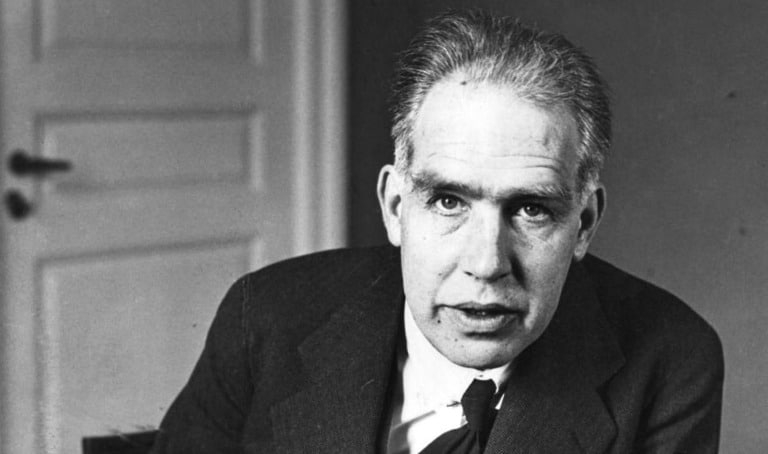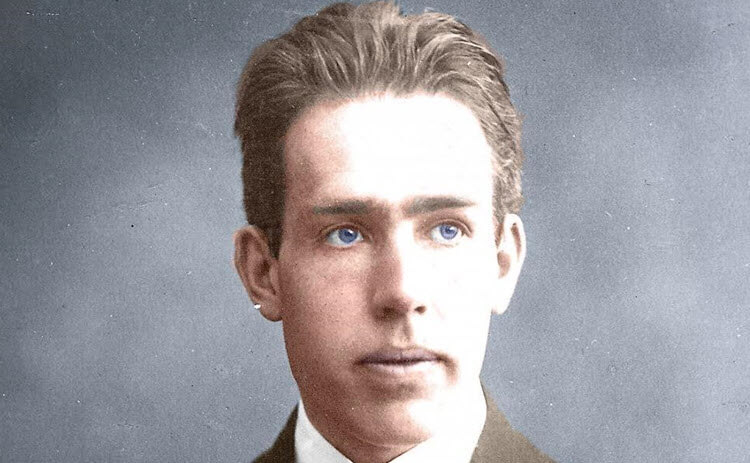Niels Bohr
Niels Bohr was a pivotal pioneer in the history of quantum mechanics in the early years. In the twentieth century, his Academy for Theoretical Sciences at the University of Copenhagen in Denmark served as a focal point for some of the most significant revolutionary mindset in constructing and studying the breakthroughs and insights associated with the growing body of knowledge about the quantum realm. Indeed, during most of the 20th century, the Copenhagen interpretation was the prevailing view of quantum physics.
Werner Heisenberg was one of Bohr's classmates who later became the head of the German nuclear research effort during the Second World War. Heisenberg met Niels Bohr in a relatively famous private encounter in Copenhagen in 1942, the facts of which were a source of academic discussion since neither party ever talked openly about the conversation, and the few citations disagree.
Bohr evaded arrest by German authorities in 1943, finally finding his way to the United States, where he worked on the Manhattan Plan at Los Alamos, but it seems that his function was essentially that of a counselor.
Years: 1885 - 1962
Achievements:
- Bohor-Van Leeuwen Theorem
- Bohr Model of the Atom












